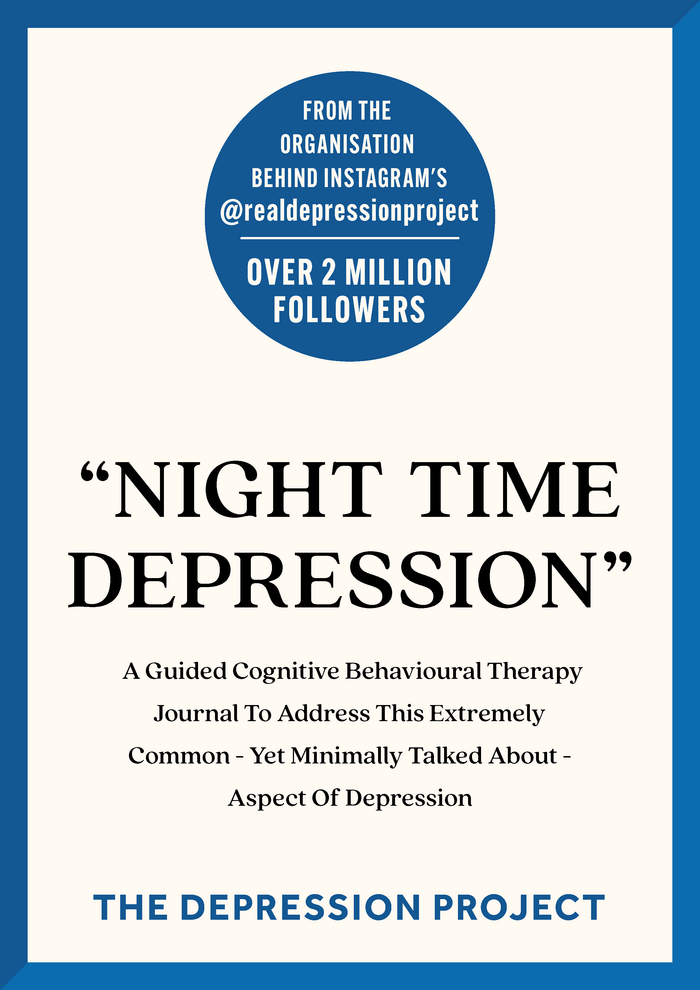As we often hear from members of The Depression Project's community, if you're struggling with depression, then it's common to stay busy in an attempt to avoid it. However, while this may help you to cope with the symptoms of your depression in the short-term, over the long-term, it's likely to lead to one or more negative consequences.
With that being said, in this blog post, we're going to talk about what four of the most common such consequences are of staying busy to avoid your depression.
Are you ready?
Consequence #1 Of Staying Busy To Avoid Depression: Increased Risk Of Becoming Burned Out, Exhausted And Reaching The End Of Your Tether
This is because if you're constantly staying busy to avoid your depression, then it means that you're not attending to your self-care needs - including your "mental self-care" needs, your "emotional self-care" needs, your "physical self-care" needs, your "social self-care needs", your "spiritual self-care" needs, and your "practical self-care" needs. And, when this is the case, as you may be able to relate to, it's common to find yourself continuously becoming burned out, exhausted and reaching the end of your tether.
To learn more about the different self-care needs that we've just mentioned - in addition to a variety of strategies that you can implement to practice self-care in each of these ways - we encourage you to read our blog post titled 6 Types Of Self-Care To Practice When You Have Depression.
Consequence #2 Of Staying Busy To Avoid Depression: Increased Risk Of Becoming Consumed With Intrusive Thoughts At Night Time, And Having Difficulty Sleeping As A Result
As we often hear from people in The Depression Project's community, while keeping busy can often distract people from their thoughts throughout the day, at night when they’re trying to fall asleep, there’s no longer anything to distract them, and as a result – BANG! They’ll suddenly find themselves bombarded with intrusive thoughts, and low and behold, they’re unable to fall asleep.
If you can relate, then we have two resources in particular to help you overcome this problem:
- Our blog post titled DEPRESSION AT NIGHT: Addressing Thoughts That Keep You Awake;
- Our cognitive behavioural therapy-based Night Time Depression Journal.
Consequence #3 Of Staying Busy To Avoid Depression: Decreased Productivity In The Long-Run
While in the short-run, you may find that you "get more done" by staying busy and avoiding your depression, in the long-run, what you'll likely find is that staying busy and avoiding your depression actually hinders your productivity. This is because depression can affect your ability to function - for example, by contributing to you feeling tired, having difficulty concentrating, lacking in motivation, and feeling more prone to overwhelm. And, for this reason:
- If you're addressing your depression and taking steps to learn how to cope with and overcome it, then over time, you'll find yourself less and less affected by depression's symptoms, and as a result, better and better able to function.
- However, if you instead continuously keep busy to avoid your depression, then you won't be learning how to cope with and overcome it. Consequently, you'll continuously find yourself affected by depression's symptoms, and as a result, your ability to function and be productive will continue to be compromised.
Consequence #4 Of Staying Busy To Avoid Depression: Struggling To Ever Get Better
Like we just touched upon, if you're continuously keeping busy to avoid your depression - as opposed to addressing your depression and taking steps to learn how to cope with and overcome it - then it's highly, highly unlikely that you'll ever get better.
What To Do Instead Of Continuously Staying Busy To Avoid Your Depression
As we hope you can see, continuously staying busy to avoid your depression can lead to a variety of significant consequences.
And, for this reason, instead of continuously staying busy to avoid your depression, we instead encourage you to set aside time to address your depression and take steps to learn how to cope with it and overcome it in a way that's manageable for you.
In practice, this could take the form of, for example:
- Setting aside an hour each week to see a therapist, and another couple of hours each week to think about and implement what you learned in therapy;
- Setting aside the half-hour bus ride on the way home from work each day to read a depression self-help book that teaches different cognitive behavioural therapy strategies which have been proven to be extremely effective and helpful for depression;
- Journalling or practicing mindfulness for 15 minutes after dinner to get in touch with your thoughts and emotions, as well as what your needs are in that moment;
- Setting aside an hour each weekend to progress through one of The Depression Project's cognitive behavioural therapy-based Depression Bootcamps - which will empower you with the skills you need to know to overcome depression.
As you can see, we are not suggesting that you do nothing but focus on your depression. Rather, we are encouraging you to gradually start confronting it in a way that's manageable for you. After all, if you do this - even if it's only a little bit each day or week - then over time, your efforts will compound, and as a result, the more time that passes, the better and better off you will be compared to if you continuously keep busy to avoid your depression.
All our love,
The Depression Project Team.


